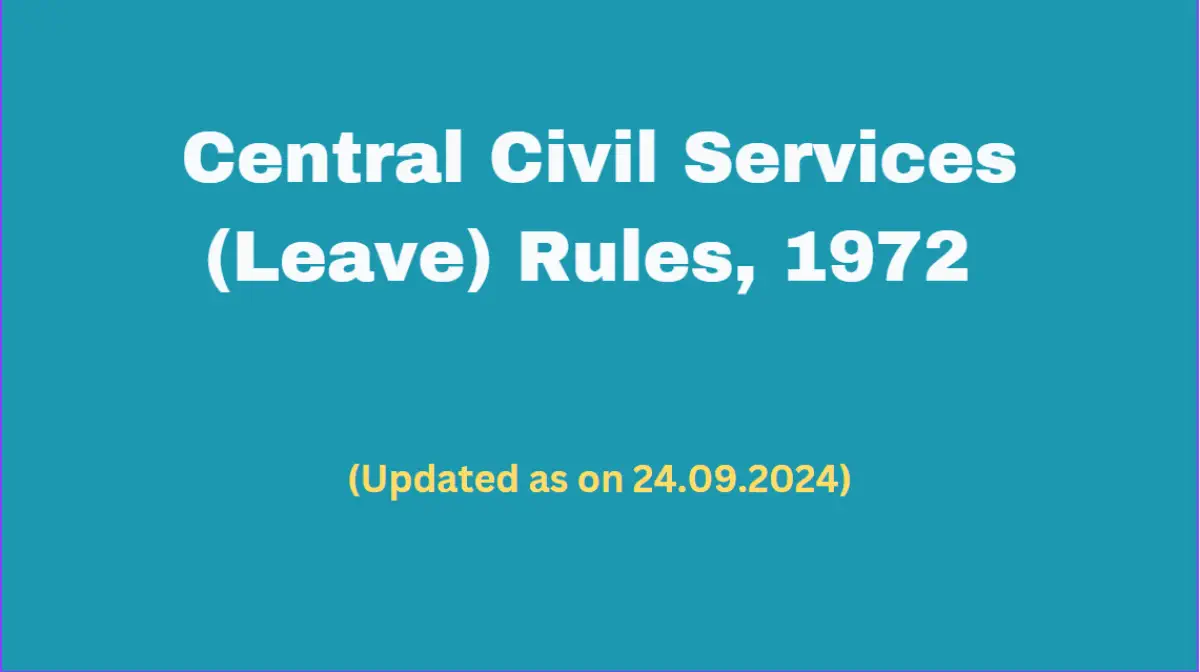Central Civil Services (Leave) Rules, 1972 (Updated as on 24.09.2024)

The Department of Personnel and Training (DoPT) has released the Central Civil Services (Leave) Rules, 1972 updated as on 24.09.2024.
This release incorporates all the individual amendments made from the last updated release till 24.09.2024.
About Central Civil Services (Leave) Rules, 1972
The Central Civil Services (Leave) Rules, 1972 govern the leave entitlements and procedures for Central Government employees in India. These rules set out the types of leave available, how they can be availed, and the conditions under which leave is granted. Some key aspects of these rules include:
- Types of Leave:
- Earned Leave (EL): Leave accrued by employees for each year of service, which can be used for personal purposes.
- Half Pay Leave (HPL): Leave granted at half the pay rate for medical or personal reasons, accruing at a specific rate per year.
- Commuted Leave: Available at full pay but debited at twice the rate of half pay leave for medical purposes.
- Casual Leave (CL): Short-term leave for emergencies or personal reasons.
- Leave Not Due (LND): A special provision where employees can avail leave in advance, against the HPL they would earn in the future.
- Extraordinary Leave (EOL): Unpaid leave granted when an employee has no other leave available.
- Maternity Leave: For female employees, available for childbirth or miscarriage.
- Paternity Leave: For male employees, during the birth of a child.
- Accrual and Accumulation:
- Employees accrue leave at specific rates (e.g., earned leave accrues at 2.5 days per month).
- Certain types of leave, like earned leave, can be carried over and accumulated for future use, up to a maximum limit.
- Granting of Leave:
- Leave is generally granted at the discretion of the competent authority and must be applied for in advance.
- Leaves can be refused or postponed if service requirements necessitate, except in cases like maternity leave.
- Medical Certification:
- Medical certificates are required for availing medical leave or commuted leave for medical reasons.
- Encashment of Leave:
- Earned leave can be encashed under specific circumstances, such as at the time of retirement.
- Leave during Suspension:
- The rules provide specific provisions for how leave is treated during suspension periods.
The Central Civil Services (Leave) Rules, 1972 aim to ensure a balanced approach to leave entitlement, addressing personal and medical needs while maintaining service continuity.




